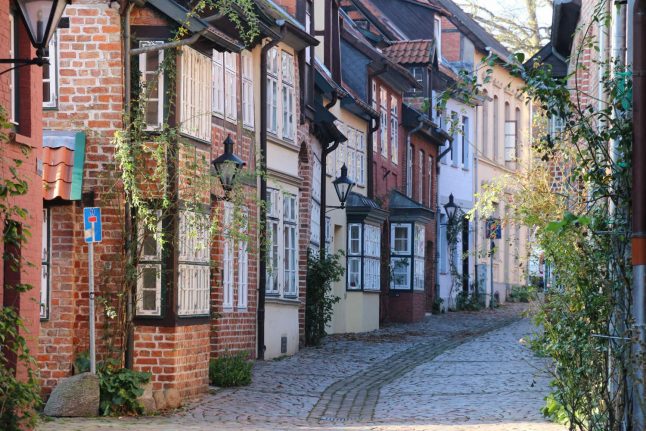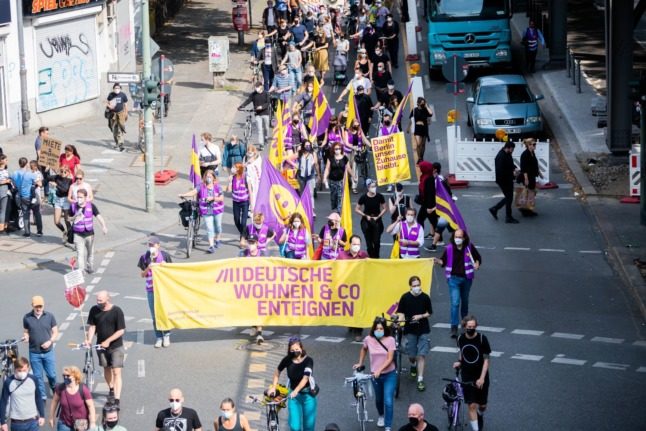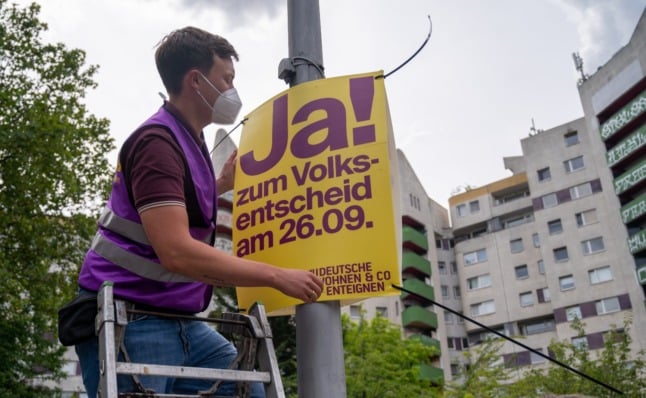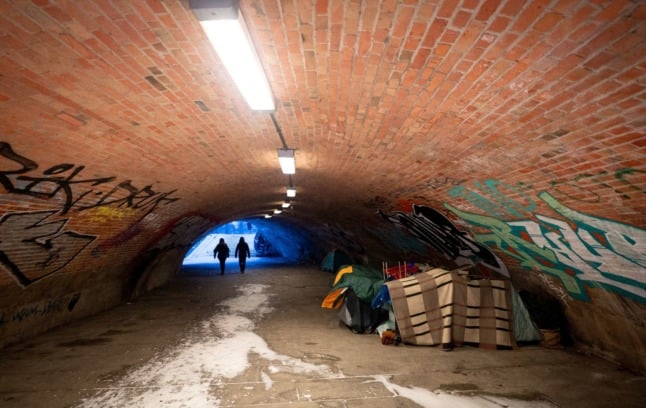The cost of houses and apartments is continuing to rise in Germany.
But a study by the real estate service provider Dr. Lübcke & Kelber has found the so-called “hidden champions” – where buying a house is a sound investment – in Germany, published by Spiegel,
READ ALSO: What you need to know about Berlin's turbulent housing market
The “Risk-Return Ranking 2019” found prices of apartments climbed last year by an average of 9.4 percent, and for new builds by 6.8 percent.
Growth was particularly rapid in major cities such as Berlin, Hamburg and Munich. An average apartment in Munich costs €7,436 per square metre, and for new builds it’s around €8,836.
This is the average cost of apartments in the 10 most expensive cities in Germany per square metre:
Munich: €7,436
Frankfurt am Main: €5,148
Konstanz: €4,763
Hamburg: €4,520
Stuttgart: €4,356
Berlin: €4,274
Freiburg: €4,209
Regensburg: €4,113
Rosenheim: €4,109
Ingolstadt: €4,019

Homes in Stuttgart, or Germany's fifth most expensive city per square metre. Photo: DPA
This is the average cost of apartments in the most cheapest cities in Germany per square metre:
Herne: €1,204
Duisburg: €1,203
Hagen: €1,200
Wilhelmshaven: €1,182
Bremerhaven: €1,130
Gelsenkirchen: €1,042
Saltzgitter: €1,033
Chemnitz: €1,018
Dessau-Roßlau: €885
Gera: €777
Munich is also the most expensive city in Germany when it comes to rents. In the Bavarian state capital, the €20 per square metre limit was even exceeded for the first time for new apartments.
An average apartment of this kind now costs on average €20.34 per square metre.
“At present, there is virtually no vacancy in Munich, and demand for housing can be satisfied almost exclusively by new construction,” the study says. The situation is similar in Frankfurt and Münster.
READ ALSO: The places in Germany where rents are rising rapidly
So where should prospective buyers think about buying a home?
Real estate experts say honing in on “B-cities” is a better option. In these places, prices have not risen so dramatically, so residents have a better chance of gaining better returns if they are renting the property out or selling it in future.
The study is primarily aimed at real estate investors who want to buy and rent apartments. But the data is also interesting for people who are looking for a property for their own use.
Lüneburg on top
So what's the result? In cities such as Munich, Frankfurt or Stuttgart, the risks of a real estate investment are very low. However, the yields that can be achieved there are now much lower because prices have risen so sharply.
By contrast, cities such as Lüneburg in Lower Saxony, Fürth in Bavaria, and Pforzheim in Baden-Württemberg are the “hidden champions” in the ranking of existing buildings.
They offer the best opportunities because the balance between risk and return still works in favour of the buyer.
These cities have become “increasingly attractive lately,” says the study.
Other places where prospective buyers should keep their eyes on is Bamberg in Bavaria, Wolfsburg in Lower Saxony and Flensburg in Schleswig-Holstein.
Cities such as Potsdam or Darmstadt often have a similarly low risk like their larger neighbouring cities of Berlin and Frankfurt, but at the same time offer higher potential and better return prospects.
“In addition, there is often a higher quality of life in the surrounding area compared to the city,” said the analysts. Young families in particular are increasingly migrating to the surrounding area.






 Please whitelist us to continue reading.
Please whitelist us to continue reading.
Member comments